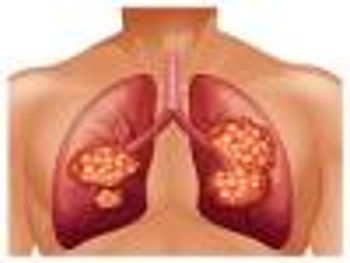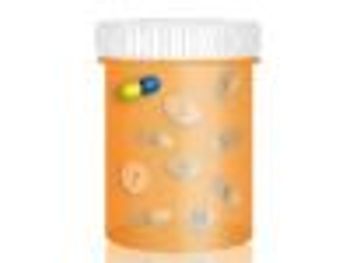
The study findings add evidence to support cannabidiol’s effectiveness in reducing severe seizures in this patient population.

The study findings add evidence to support cannabidiol’s effectiveness in reducing severe seizures in this patient population.

Tofacitinib is the first and only Janus kinase inhibitor approved by the FDA for this patient population.

Tofacitinib is the first and only Janus kinase inhibitor approved by the FDA for this patient population.

In response to the increasing incidence of colorectal cancer in young and middle-aged individuals, the American Cancer Society has updated its screening recommendations.

The addition of nelarabine (Arranon) to standard chemotherapy provided further benefit for patients with moderate or high risk of disease recurrence.

The results of a recent study provide important insights into what might influence the development of multiple sclerosis.

New research investigates whether reducing the pill burden in HIV treatment regimens could improve patient adherence, retention in care, and virologic outcomes.

Transplant patients who received organs from donors who died from drug intoxication had similar survival compared with other transplant patients.

Researchers have identified a gene associated with the body’s circadian rhythm that may play a role in the development of breast cancer.

Two studies assessed prostate specific antigen (PSA) progression in patients treated with apalutamide (Erleada, Janssen) and the association between PSA doubling time and survival.

Researchers compared lung cancer care and outcomes, including patient characteristics, stage of cancer at diagnosis, treatment, and overall survival of patients in the United States and England.

Data from two phase 3 studies found that emicizumab-kxwh (Hemlibra) prophylaxis controlled bleeds in patients with hemophilia A.

Patients with severe asthma who were treated with dupilumab experienced a reduction in severe exacerbation risk, improved lung function, and reduced dependence on oral corticosteroids.

Officials with the FDA alerted health care professionals about reduced efficacy for some patients taking pembrolizumab (Keytruda) and atezolizumab (Tecentriq) for metastatic urothelial cancer in ongoing clinical trials.

Antibiotic-resistant Acinetobacter baumannii infections put children with compromised immune systems in health care settings at greater risk of infections of the lung, urinary tract, and other sites.

Patients with glucocorticoid-induced osteoporosis on glucocorticoid therapy who received denosumab (Prolia) had greater gains in bone mineral density in a phase 3 trial.

Opioid-related pharmaceutical payments were associated with an increase in the number of opioids prescribed.

Erenumab-aooe (Aimovig, Amgen) is the first FDA-approved preventive migraine treatment in a new class of drugs that work by blocking the activity of the molecule that is involved in migraine attacks.

Erenumab-aooe (Aimovig, Amgen) is the first FDA-approved preventive migraine treatment in a new class of drugs that work by blocking the activity of the molecule that is involved in migraine attacks.

Community Oncology Alliance survey indicates concern that Medicare Part B reforms will have a negative effect on patient care and drive up costs.

Data from two phase 3 studies showed that esketamine nasal spray demonstrated improvements in depressive symptoms for patients who did not respond to other antidepressant treatments.

The trial’s primary endpoint was a statistically significant reduction of exacerbations in patients with chronic obstructive pulmonary disease (COPD).

A new study questions medical marijuana’s role in reducing opioid use.

Population-based screening was found to be associated with a reduction in admissions, physician visits, and prescribed medication for individuals diagnosed with type 2 diabetes.

Officials with the FDA have approved fingolimod (Gilenya, Novartis) for the treatment of relapsing multiple sclerosis in pediatric patients aged 10 years and older, making it the first FDA-approved drug to treat MS in this population.

Fingolimod (Gilenya, Novartis) is the first FDA-approved treatment to treat multiple sclerosis in pediatric patients.

Researchers found that women with advanced triple-negative breast cancer who had inherited a BRCA mutation benefited more from the chemotherapy carboplatin than standard treatment.

A new study examines how chemoresistance evolves over time, which could lead to improved patient outcomes and survival.

A dual immune-checkpoint blockade efficiently controlled the development of chronic lymphocytic leukemia by restoring functional antitumor immune response.

Only a small portion of latently infected cells are reactivated by latency-reversing agents.